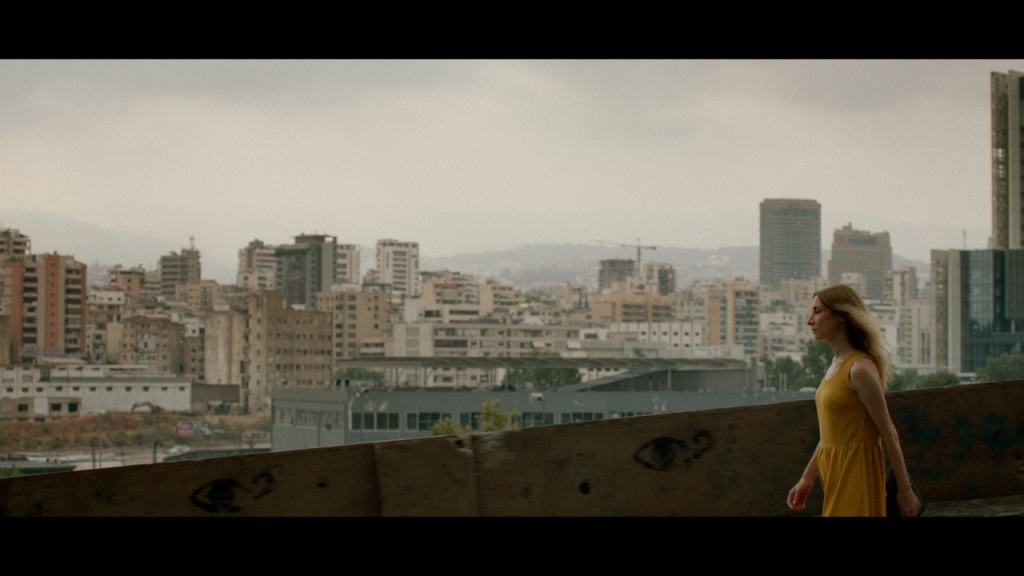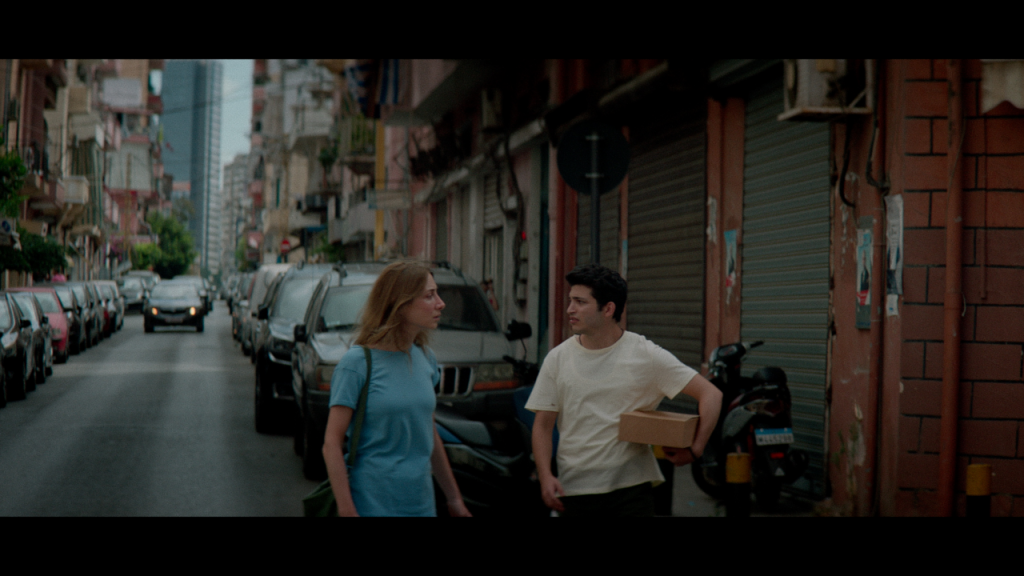In the opening shots of Arzé, director Mira Shaib and cinematographer Heyjin Jun track their title character (played by Diamond Abou Abboud) through the streets of Beirut as she runs errands, capturing the bustling energy of the city in a way that points toward the kinetic pace that will fast pervade the rest of the film. Arzé is a single mother to a teenage son, Kinan (Bilal Al Hamwi), and supports him and her agoraphobic older sister who lives with them by running a homemade pie business: she bakes them, and Kinan delivers them. But his efficiency is hindered by the fact that he has to make all his deliveries on foot, prevented Arzé from completing more sales. Kinan’s apathy toward the whole endeavor doesn’t help, and he spends most of his time with his girlfriend, complaining about his mom and describing his yearning to get out of Lebanon and go to Europe (he’s almost raised enough money for a passport) where he can start a new life— and perhaps also find his dad.

Arzé doesn’t receive much more assistance from her sister, who refuses to sell her old jewelry she never even wears because it’s from her long-missing lover, although the money could go toward purchasing a scooter that would allow Kinan to complete deliveries faster (and an electric mixer, which would hasten the baking process). Arzé begins making payments toward a scooter anyway, which Kinan uses for joy rides outside of his delivery routes— and it’s promptly stolen off the street outside his friend’s house. Not one to accept the likeliest scenario— that it had been stolen and dismantled for parts— Arzé begins casing the streets in search of her property before too much time passes and the scooter is gone for good, her reluctant son in tow.
Heavy shades of Bicycle Thieves color Arzé, minus former’s spiral into hopelessness and despair. Arzé travels down the cyclical path that so many fighting to carve out even the most meager livelihoods tread, although its cheery finale feels just out of step with the material that precedes it— a lot of not only unhelpful, but downright hostile, bureaucratic red tape (when Arzé and her son go to the police to report their stolen scooter, the encounter nearly ends in their being arrested) and heavy family drama in which the hurling of mean-spirited words at each other uncovers some deep-seated hurt and family secrets. But despite the tense, high stakes, there is a darkly comedic, absurdist undercurrent running throughout the film. This is especially evident in Arzé’s numerous encounters with a local shopkeeper she keeps returning to to purchase garb and accessories to help her best pose as a local in whichever neighborhood she is next venturing to. Again, the film doesn’t quite strike a consistently even tone; the increasingly exasperated shopkeeper’s antics are played for broad humor that rubs up against Arzé’s single-minded determination in an off way that almost feels like they are coming from two different movies (that the shopkeeper nearly runs away with a film that doesn’t center around her at all is nearly a detriment). But these sequences are also among the most intriguing in the film for their cultural specificity and how they prod at Lebanon’s sectarian divisions. To fit in and derive what information about her scooter she requires, Arzé often has to change her name and accent, her religious affiliation, or cover her head.

Abboud is a force to be reckoned with, and Hamwi— a non-professional actor who trained specifically for this role— fits right in, granting Kinan a raw edge that suits his explosive temper and adolescent uncertainty. They and the rest of the cast ably navigate Sam Faisal Shaib and Louay Khraish nuanced script. To riff on such a well-known and well-regarded work of world cinema for a first feature is risk, but Shaib— a few of the typical first feature issues aside— imbues Arzé with ample cultural and regional specificity to make it a uniquely rewarding watch on its own.
Arzé had its world premiere at the 2024 Tribeca Film Festival on June 8. Runtime: 90 minutes.